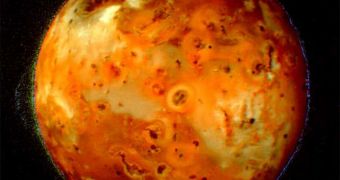In a new scientific study, a team of astronomers determined that low-mass stars all over the Universe could be preventing extrasolar planets in their orbits from turning into life-supporting environments.
New conclusions indicate that the stellar objects exert tremendous tidal forces on their planets, so powerful that they could be forcing the axis of rotation these exoplanets have to become perpendicular to their orbit.
The team also adds that this phenomenon could take place within a few million years after the companions finish forming, which is tremendously fast. Our own planet's rotation axis is inclined by 23.5 degrees, which enables Earth to have seasons.
Without such an inclination, exoplanets would feature permanently-frozen poles and extremely hot equators. Life would have only a very small area at its disposal to develop.
Even if that happened, it would not last for long, the scientists add. A scorching equator would eventually eliminate any traces of an atmosphere around such exoplanets.
As such, even if these objects were in their parent stars' habitable zones, they would still become dead zones, unable to support life, and incapable of sustaining comparison with Earth.
The habitable zone is an area around each star where temperatures are just right to support the existence of liquid water. Earth is in the middle of the Sun's habitable zone, while Venus and Mars are just outside it, Daily Galaxy reports.
These conclusions are presented in a recent issue of the scientific journal Astronomy & Astrophysics, in a paper entitled “Tidal obliquity evolution of potentially habitable planets.”
The study was carried out by experts at the Astrophysical Institute Potsdam (AIP), in Germany, who were led by astronomer René Heller. The investigators say that tidal forces exoplanets are subjected to should inform a new type of thinking as to what can be defined as a habitable zone.
The scientist explains that a planet's distance from its star and the chemical composition of its atmosphere should no longer be considered the only important factors in determining whether the object is habitable or not.
“I think that the chances for life existing on exoplanets in the traditional habitable zone around low-mass stars are pretty bleak, when considering tidal effects,” Heller explains.
“If you want to find a second Earth, it seems that you need to look for a second Sun,” the expert concludes.

 14 DAY TRIAL //
14 DAY TRIAL //